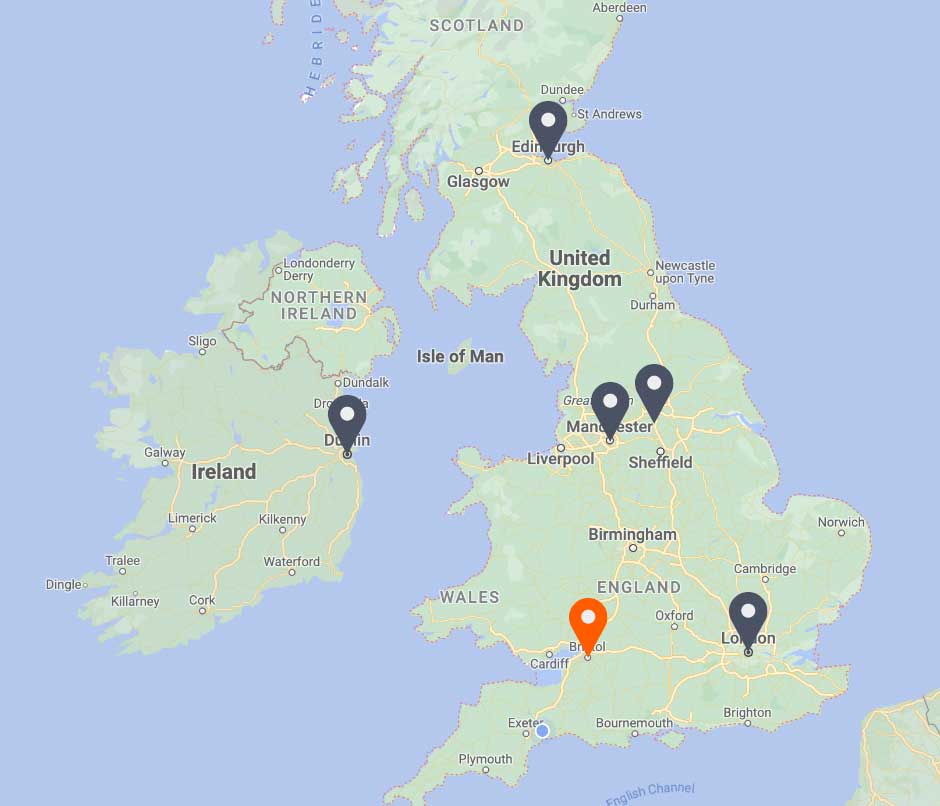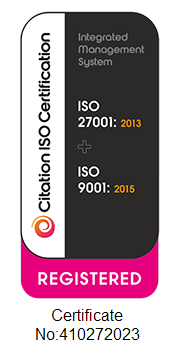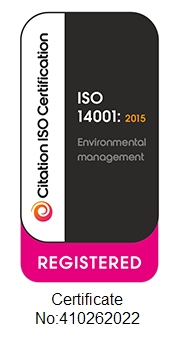THIS ARTICLE AT A GLANCE
- How can ETS help?
- Final thoughts
CONTACT ETS
If you have any questions or would like to discuss further what you should be doing, ETS is here and willing to help.
Call 0117 205 0542
Email enquiries@energy-ts.com
Submit a contact form
CHECK OUR SERVICES
The Importance of Behaviour in Corporate Energy Efficiency

Improving energy efficiency through engineering and technological interventions is known as being an important factor in reducing operational cost, controlling maintenance requirements, and mitigating risks posed by an increasingly onerous legislative landscape.
However, whilst adopting formal and comprehensive energy management practices (for example through accreditation to standards such as ISO50001) will undoubtedly reap rewards, their full potential will only be realised if the workforce itself is fully engaged and knowledgeable of how their actions and behaviour can impact overall efficiency.
This fact is increasingly being understood by major blue-chip organisations, including RBS and Tesco, who have recently reported that they have embarked on widespread employee engagement and training programmes.
RBS have rolled out their ‘JUMP’ project which encourages employees to engage in energy saving, sustainable travel, and waste reduction activities. Organised into departmental teams and incentivised with monthly retail vouchers, the teams compete against their colleagues to drive improvement across the business. Whilst the company initially experienced some difficulties in monitoring and measuring success, this pilot programme was gauged on the financial and carbon benefits from energy saving, alongside feedback from those employees involved.
Similarly, Tesco rolled out their ‘Energy Matters’ initiative which included training over 4,000 colleagues across 165 stores in energy-saving practices. The biggest impact was felt in the Bakery and Hot Counter areas of the stores, with significant savings of approximately 320,000kWh and 140tCO2e being recorded in the bakeries alone.
So, with these large companies taking action and leading the way, the question remains as to why more businesses are not engaging with their teams and running behavioural and cultural change programmes?
The main reasons appear to be that organisations believe these programmes are expensive to administer and that they can be difficult to monitor and evaluate.
In the cases of RBS and Tesco, success was measured in different ways, influenced by their specific business dynamics and sectors, and the ways in which their colleagues could positively affect energy consumption – one size did not fit all for these organisations, and this demonstrates that companies should tailor their own programmes and measure success in ways that make sense to their businesses.
In terms of mitigating the cost of implementing these programmes, a simple hierarchy should be followed to ensure that any campaign is targeted and effective:
- Identify the opportunity: which energy and/or environmental metrics will be targeted for improvement?
- Develop a thorough brief: how will the programme be rolled out, incentivised and tracked? Will an initial pilot programme be put into action to understand any issues before a company-wide programme is attempted?
- Determine how success will be measured: will specific targets be developed for the environmental metrics that have been identified? Should other ancillary considerations be included – for example, staff satisfaction, productivity?
- Review and report success in a manner that resonates with the business: develop ways to report progress to the business that is engaging, motivating, and in line with the wider company strategy.
Having an engaged and motivated workforce will certainly increase savings potential, whilst also building collaboration across the business. With a well-tailored and considered programme, the benefits that could be realised will extend beyond the efficiency and environmental agenda initially targeted and add real value across the organisation.
How can ETS help?
For over 20 years, ETS has assisted organisations of all sizes and sectors to dramatically improve the energy efficiency and carbon performance of their buildings – significantly reducing environmental impacts whilst saving substantial sums of money – across individual assets and large international portfolios.
Whatever the nature of your business, we can help.
Final thoughts
If you are looking for an energy management system that is tailored to your business needs, ETS can provide you with 25 years of experience in dramatically improving energy efficiency and reducing environmental impacts. Whether your businesses have individual assets or large international portfolios, ETS can assist you in saving substantial amounts of money while significantly reducing your carbon performance.
To discuss your requirements, get in touch. You can contact us by calling 0117 205 0542 or drop us an email at enquiries@energy-ts.com.
Improving energy efficiency through engineering and technological interventions is known as being an important factor in reducing operational cost, controlling maintenance requirements, and mitigating risks posed by an increasingly onerous legislative landscape.
However, whilst adopting formal and comprehensive energy management practices (for example through accreditation to standards such as ISO50001) will undoubtedly reap rewards, their full potential will only be realised if the workforce itself is fully engaged and knowledgeable of how their actions and behaviour can impact overall efficiency.
This fact is increasingly being understood by major blue-chip organisations, including RBS and Tesco, who have recently reported that they have embarked on widespread employee engagement and training programmes.
RBS have rolled out their ‘JUMP’ project which encourages employees to engage in energy saving, sustainable travel, and waste reduction activities. Organised into departmental teams and incentivised with monthly retail vouchers, the teams compete against their colleagues to drive improvement across the business. Whilst the company initially experienced some difficulties in monitoring and measuring success, this pilot programme was gauged on the financial and carbon benefits from energy saving, alongside feedback from those employees involved.
Similarly, Tesco rolled out their ‘Energy Matters’ initiative which included training over 4,000 colleagues across 165 stores in energy-saving practices. The biggest impact was felt in the Bakery and Hot Counter areas of the stores, with significant savings of approximately 320,000kWh and 140tCO2e being recorded in the bakeries alone.
So, with these large companies taking action and leading the way, the question remains as to why more businesses are not engaging with their teams and running behavioural and cultural change programmes?
The main reasons appear to be that organisations believe these programmes are expensive to administer and that they can be difficult to monitor and evaluate.
In the cases of RBS and Tesco, success was measured in different ways, influenced by their specific business dynamics and sectors, and the ways in which their colleagues could positively affect energy consumption – one size did not fit all for these organisations, and this demonstrates that companies should tailor their own programmes and measure success in ways that make sense to their businesses.
In terms of mitigating the cost of implementing these programmes, a simple hierarchy should be followed to ensure that any campaign is targeted and effective:
- Identify the opportunity: which energy and/or environmental metrics will be targeted for improvement?
- Develop a thorough brief: how will the programme be rolled out, incentivised and tracked? Will an initial pilot programme be put into action to understand any issues before a company-wide programme is attempted?
- Determine how success will be measured: will specific targets be developed for the environmental metrics that have been identified? Should other ancillary considerations be included – for example, staff satisfaction, productivity?
- Review and report success in a manner that resonates with the business: develop ways to report progress to the business that is engaging, motivating, and in line with the wider company strategy.
Having an engaged and motivated workforce will certainly increase savings potential, whilst also building collaboration across the business. With a well-tailored and considered programme, the benefits that could be realised will extend beyond the efficiency and environmental agenda initially targeted and add real value across the organisation.
How can ETS help?
For over 20 years, ETS has assisted organisations of all sizes and sectors to dramatically improve the energy efficiency and carbon performance of their buildings – significantly reducing environmental impacts whilst saving substantial sums of money – across individual assets and large international portfolios.
Whatever the nature of your business, we can help.
To discuss your requirements, please get in touch. You can contact us by calling 0117 379 0850 or drop us an email at enquiries@energy-ts.com.
Related Article
Low Carbon Skills Fund Phase 5 secures £16 million (Public sector)
Building Resilience for Extreme Weather with ETS Solutions Unprecedented effects of climate change are on the rise and in evidence, where extreme heatwaves and wildfires have occurred in Southern Europe
Building Optimisation & BMS Controls during the Summer
Building Resilience for Extreme Weather with ETS Solutions Unprecedented effects of climate change are on the rise and in evidence, where extreme heatwaves and wildfires have occurred in Southern Europe
Carbon Reporting leads you to a sustainable future
Carbon reporting enables organisation to have a better understanding about their GHG emissions, resulting from their operations and activities. This data empowers businesses to identify opportunities and prepare for Net







































































